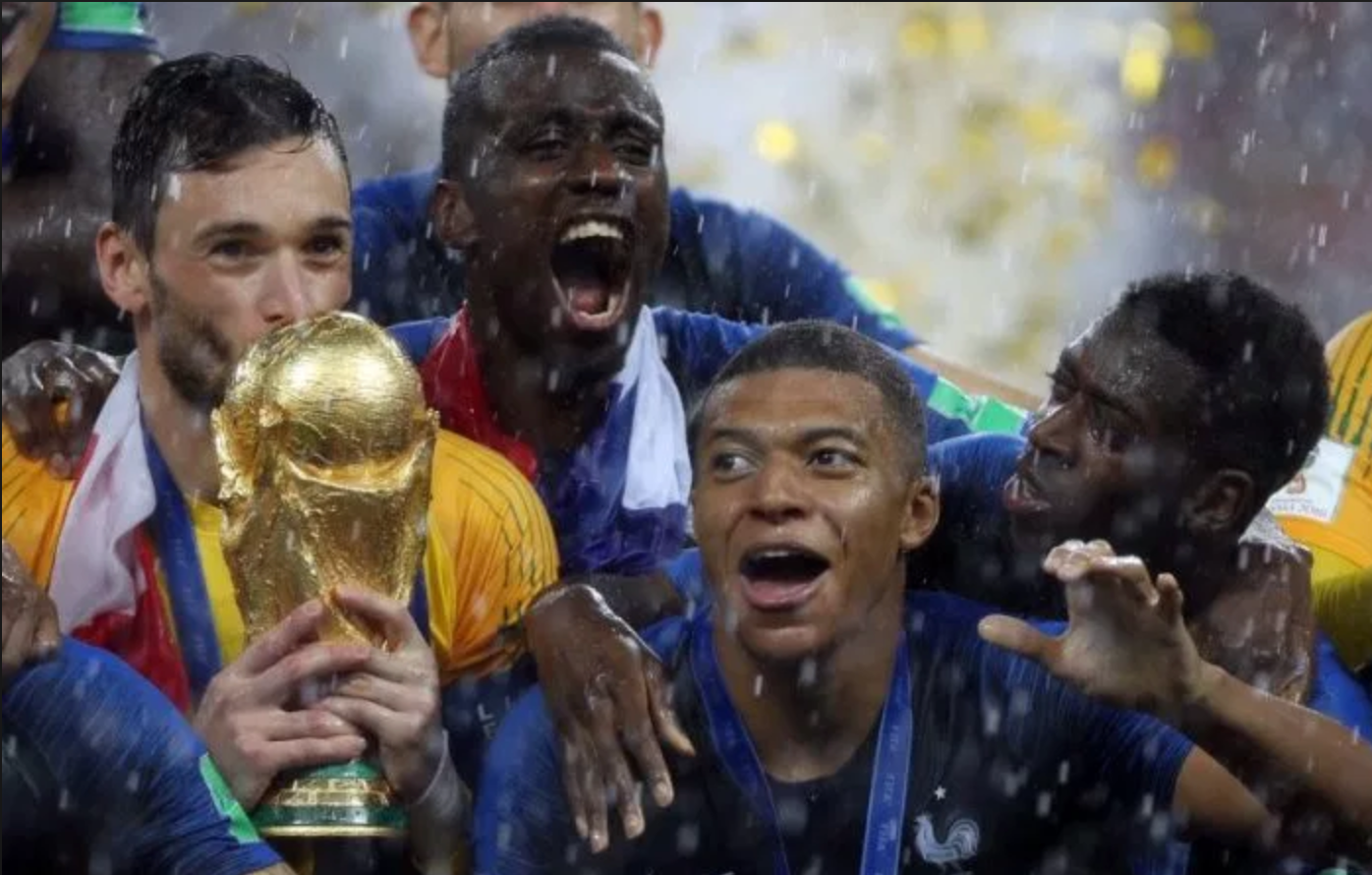
Kicking Islamophobia: France, the World Cup & the enduring Problem of Racism
This article by Bridge Initiative Senior Research Fellow Farid Hafez originally appeared on the Islamophobia Research & Documentation project’s website.
Let me admit something before starting these lines of thought. Like most soccer games before, I have not watched a single soccer game of this year’s World Cup. By my own biography, I was hoping for an African or South American country to deliver the success of the world’s best soccer team. At the same time, it was to some extent a satisfaction to see the only lasting ‘African team in the world cup’ – France – to come off as the winner from the finals. This was especially lightening, since the Croatian team in my reading was more conspicuous with its racist party songs. Especially when it comes to the fans, who chanted the infamous slogan remembering the genocide “Noz, Zica, Srebrenica” (Knife, wire, Srebrenica), while the goalkeeper of the Croation team, Danijel Subašić, dedicated his victory over England to the mothers of Srebrenica, which takes care of the remembrance of the genocide against Bosnian Muslims. But between sticking with a team made of postcolonial subjects that subvert the French national(ist) imagination by prostrating black skinned winners or sticking with a team that made headlines with nationalist and chauvinist songs, there are many grey shades in between. In fact, the French case became widely criticized.
First, there is this notion of black and brown bodies only excelling in the racist imagination of a society, when they fit into the racial hierarchy of being good sportsmen; The black and brown bodies representing the bodily strong, while whiteness stands for intelligence and civilization. This is especially problematic, as white official France is celebrating the winning team, while the Black and Brown and especially the female Muslim body is suffering under police brutality and legal Islamophobia. Like Kylian Mbappe argued, there is a continuity of French colonialism to the post-colonial politics of the Fourth Republic. While in the past, processes of naturalization and citizenship were a key resource for elevation and integration of the “Negroes of the colonies”, in today’s France, there is a similar assimilationist approach. It builds on the ideals of exceptionalism and civility, where the “capacity to manage” is a key factor in the management process of the state.
Second, there is flexibility in drawing the border to construe two separated entities; An ‘us’ and ‘them’, the second being the otherized and alienated and marginalized. As one trending tweet stated:
“IF I SCORE, I’M FRENCH. IF I DON’T, I AM ARAB.”
Or as Zama Mdoda said in a piece on Afropunk:
“FRANCE ONLY LIKES BLACK PEOPLE WHEN THEY WIN”.
But this goes far beyond France. It was also the case with famous German player Mesut Özil, who not only came under harsh critique for posing on a photo with Turkish president Recep Tayyip Erdogan, but was attacked with heavy racist slurs by many, especially after the German group failed to ascend. The former world cup winner soon forgot the success delivered by Mesut Özil together with Jerome Boateng, Sami Khedira and the rest of the team back in 2014. But this only shows the elasticity of the border that is drawn to separate between ‘us’ and ‘them’, the otherized and alienated subject. The same with far-right leader Marine Le Pen, who would first state that she would not recognize France in the French soccer team and then changed to tweet her support for the current team to become part of this sports victory.
Read the full article here.

 Search
Search